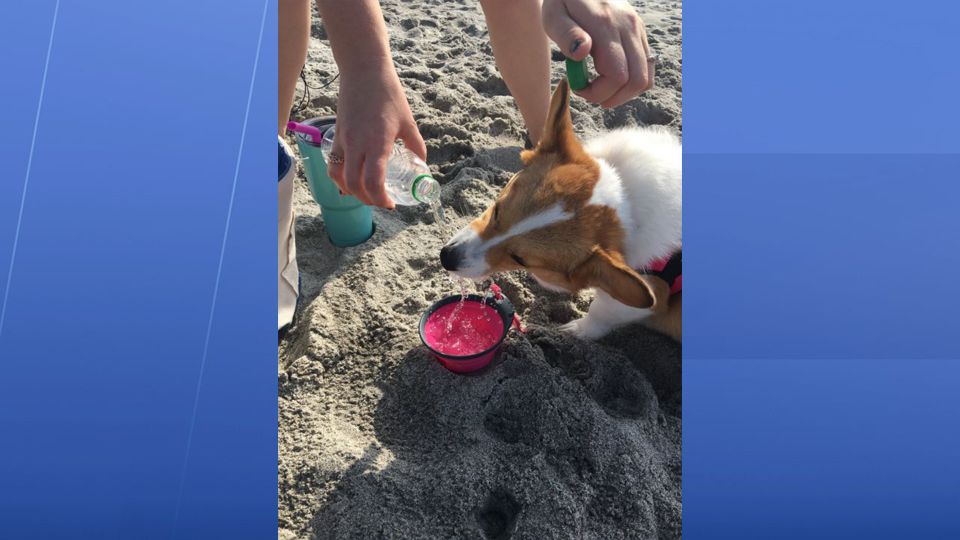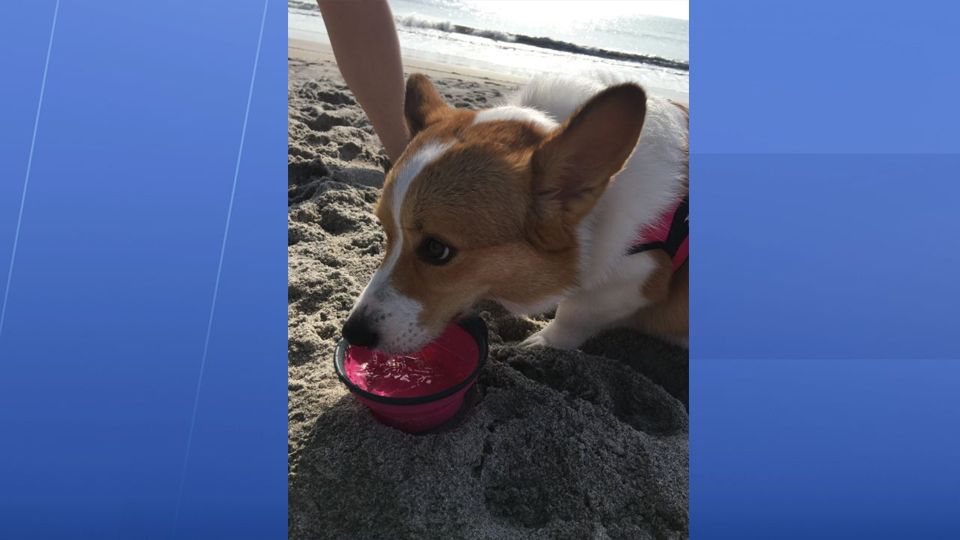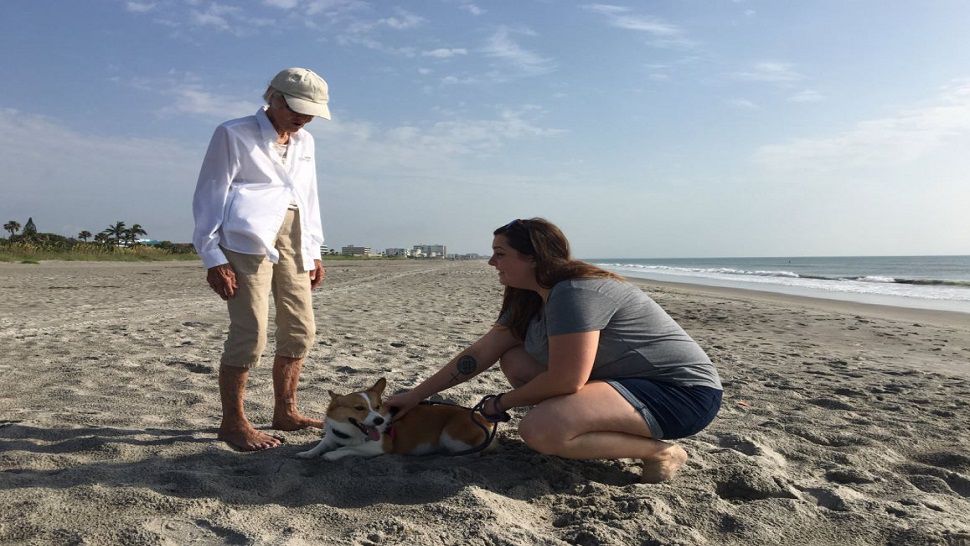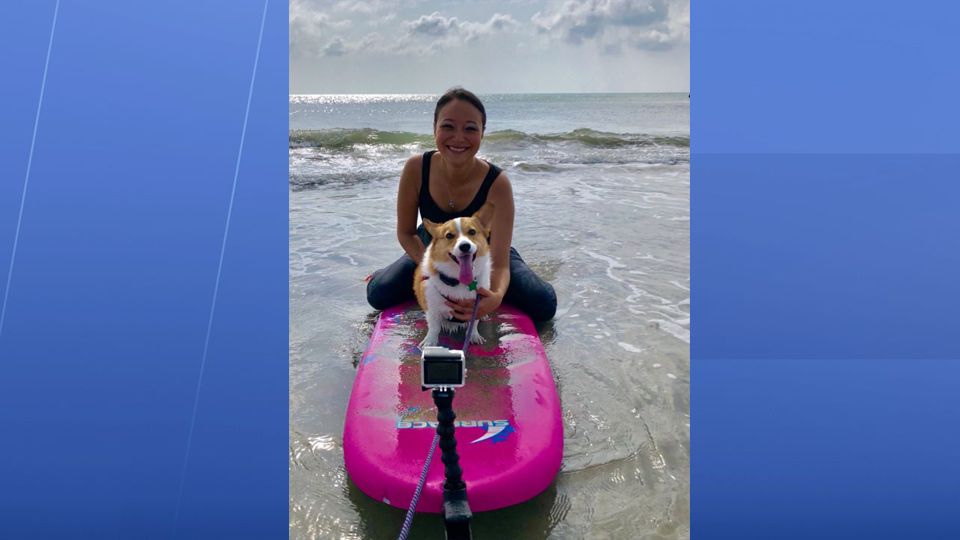ROCKLEDGE, Fla. -- A local veterinarian is giving dog owners a warning about the dangers of saltwater poisoning.
- Tampa dog died earlier this month from saltwater poisoning
- Symptoms can start hours after poisoning begins
- Can lead to kidney damage, seizures, or death
- Keep your dogs hydrated, shaded, and watch out for warning signs
Just this month, a dog in Tampa died after spending the day at the beach.
Now that a part of Cocoa Beach is dog friendly for the next six months, many dog owners will be bringing their pets to the beach for the first time.
As Rockledge veterinarian Dr. Martha Kehoe explains, symptoms of saltwater poisoning can start several hours after poisoning begins. If not treated in time, it can lead to kidney damage, seizures and even death.
Katie Holley brings her two-year-old corgi, Poppy, to the beach every week. She says she always packs water and a collapsible bowl.
Holley is aware that dogs consume saltwater while swimming chasing bubbles and digging in the sand but is surprised not everyone knows that salt is high quantities is dangerous.
"I look at her pupils to make sure they are not dilated, I take her outside and hose her down and make sure she has lots of water," Holley said.
There are a few things to keep in mind if you do take your dog to the beach:
Limit your time at the beach to two hours or less. Keep your dog hydrated and have shade available to prevent overheating. Watch out for signs of distress like excessive panting, lethargy, vomiting and diarrhea.
"If they start having aggressive panting, eventually they collapse," Kehoe said.
If your dog is displaying any of these symptoms, take them to the vet immediately.
Did you know that if you’re not careful with your dog, a day at the beach could turn deadly? @MyNews13 explains how to keep your furry friend safe this Summer. pic.twitter.com/9dvDDeV26d
— Krystel Knowles (@KnowlesKrystel) July 22, 2018






